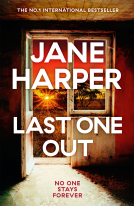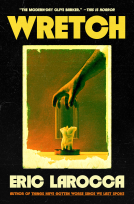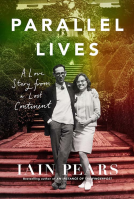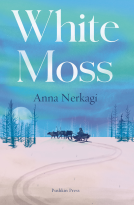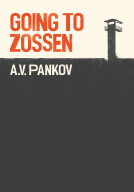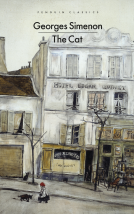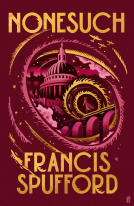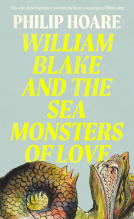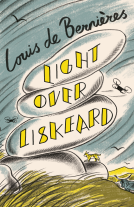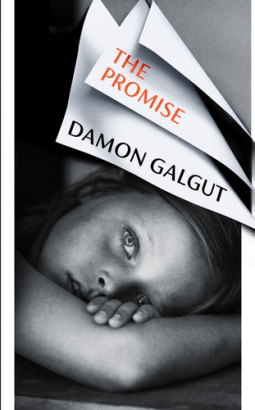
The Promise
by Damon Galgut
This title was previously available on NetGalley and is now archived.
Send NetGalley books directly to your Kindle or Kindle app
1
To read on a Kindle or Kindle app, please add kindle@netgalley.com as an approved email address to receive files in your Amazon account. Click here for step-by-step instructions.
2
Also find your Kindle email address within your Amazon account, and enter it here.
Pub Date 17 Jun 2021 | Archive Date 17 Jul 2021
Random House UK, Vintage | Chatto & Windus
Talking about this book? Use #ThePromise #NetGalley. More hashtag tips!
Description
A masterpiece of a family in crisis from twice Booker-shortlisted author Damon Galgut.
'A literary masterpiece,' Sarah Hall
'Emotionally powerful and thrilling,' Gabriel Byrne
The Promise charts the crash and burn of a white South African family, living on a farm outside Pretoria. The Swarts are gathering for Ma's funeral. The younger generation, Anton and Amor, detest everything the family stand for -- not least the failed promise to the Black woman who has worked for them her whole life. After years of service, Salome was promised her own house, her own land... yet somehow, as each decade passes, that promise remains unfulfilled.
The narrator's eye shifts and blinks: moving fluidly between characters, flying into their dreams; deliciously lethal in its observation. And as the country moves from old deep divisions to its new so-called fairer society, the lost promise of more than just one family hovers behind the novel's title.
In this story of a diminished family, sharp and tender emotional truths hit home. Confident, deft and quietly powerful, The Promise is literary fiction at its finest.
‘Gorgeous and pleasurable,' Tessa Hadley
'The most important book of the last ten years,' Edmund White
'Simply: you must read it,' Claire Messud
Available Editions
| EDITION | Other Format |
| ISBN | 9781784744069 |
| PRICE | £16.99 (GBP) |
| PAGES | 288 |
Average rating from 50 members
Featured Reviews
 Bookseller 701909
Bookseller 701909
"...we are the rainbow nation, which is to say it's a mixed and motley and mongrel assembly in the church today, restive and ill at ease like antagonistic elements in the periodic table".
So plays out the saga of the Swart family against this backdrop of the rainbow nation. It begins with the funeral of Ma, who has died from cancer, but the undercurrents of family strife are apparent as she has decided to revert to Judaism, causing a rift in an already uncomfortable family scenario. We are introduced to Ma's husband and children and close relatives, gathering together at the family farm. Galgut cleverly weaves together all their situations and personalities, providing a backdrop for the novel as their lives play out.
Amor, the youngest daughter and the first character to be introduced to us, was struck by lightning as a younger child. She is determined that the black woman who works for the family be given the house that has been promised to her, but is disappointed time and time again by members of her family that fail to keep the promise.
Anton, the only son, is a troubled young man, having gone awol from the army after shooting a black woman during his national service. He lives a hard life, returning to the farm in his later years, perceived as difficult and strange.
We follow the family from the death of Ma, then Pa, followed by Astrid and Anton, over a period of years.
Religion is a recurring theme throughout the novel, from the Jewish mother, the Dutch Reformed snake charming father and the converted Catholic daughter Astrid.
As South Africa undergoes change, so does the fortune and woes of the family. It is a slow deterioration; there is very little happiness or celebration. When middle aged Amor eventually arrives at the farm to finally fulfil the promise to Salome, even this is difficult and complex.
Having grown up in South Africa, I was able to make connections to the language ( kotch being a word for vomit!) as well as being able to relate to the customs, and the racial tensions, which made it very interesting to read.. The slow disintegration of the family and how it relates to their place in South Africa is deftly dealt with and it is a beautifully written, even though it is an unhappy novel. The characterisation is brilliantly done, even though most of the characters are not very likeable.
With thanks to NetGalley and the publisher for a copy in return for an honest review.
 Neil G, Reviewer
Neil G, Reviewer
This is the story of the Swart family. It is also a story about South Africa. It is fair to say it is a sad story.
As the novel begins, we are with Amor Swart when she learns about her mother’s death. The family gathers at the farm and Amor overhears a promise being made. We very quickly learn that this is not a happy family.
What follows is a family saga broken into several sections each named for a member of the family. Each section is set some time after its predecessor and we also drop in on significant moments in South African history from the 1980s and into the 21st century (e.g. apartheid, Nelson Mandela , Thabo Mbeki). Both family and country struggle to hold things together and it is often difficult to see a light at the end of the tunnel for either.
You should not read this book looking for an uplifting experience.
Except. Except for the narrative voice which somehow manages to take a dark story of a sad family and a struggling country and make it fascinatingly readable. Here, the reviewers turn to Woolf and Joyce for their comparisons. Perhaps especially to Woolf. Galgut employs what is probably best referred to as a “floating narrator” and reading the book has a feel of a viewpoint that moves around, and in and out of, different characters. The voice switches from third person to second or first in mid-sentence or mid-paragraph, as though the narrator has turned to the reader or has temporarily entered the thoughts of the subject. The narrative thread latches on to a topic and follows it until it re-joins the main story (at one point a character looks out of a window and sees jackals and the narrative floats over to these jackals and follows them until they pass a house where it leaves the animals and joins the people in the house).
As I say, this is not a happy book. Several people do not make it to the last page and we spend time at several funerals as well as with characters living unhappy lives. We also see a rainbow nation with a crumbling infrastructure that still has a lot of problems to deal with. But, despite its dark contents, if, like me, you respond well to the narrative voice, this might just turn out be one of your favourite books of the year.
https://www.newyorker.com/magazine/2021/04/19/a-family-at-odds-reveals-a-nation-in-the-throes
https://harpers.org/archive/2021/04/new-books-april-2021/
 Kate S, Reviewer
Kate S, Reviewer
I dream of being able to write like this! The beauty of The Promise isn’t so much as in the plot as it is in its narrative. Weaving and winding through time and space, from character to character with constant changes of narrative voice. One minute first person, the next our omniscient narrator is offering us casual asides and rhetorical questions. It is as unsettling as it is a natural and organic a literary dichotomy.
The characterisation is fascinating to me, on one hand the author is sparing with the information allowing us the to meet the characters as we would meet anyone we come across in our everyday lives. You don’t have a persons back story or a monologue of their internal thought processes outside of books and you have to choose to like or dislike, or have empathy for someone on limited information and so it is for us as we first meet Amor, Astrid and Anton. On the other hand, the characters are so real and richly imagined in Galgut’s mind that they feel utterly real and fully three dimensional.
I began this review by saying that the beauty of the novel isn’t so much in the plot as it is in the writing and for me, that is true but it doesn’t mean the plot is weak or the subject matter poorly handled. There was no way to anticipate what would happen next and more than once I exclaimed out loud in surprise at something that happened. I was a teenager when Mandela was freed. I remember the benefit concert for him and those photos of him smiling, fist triumphantly punching the air as he approached the worlds media. But for me apartheid was a brief stop in a school history book and not something that I’ve since thought about since the birth of ‘new’ South Africa. Imagine then how the Ruby World Cup scenes punched me between the eyes. Amor and her family hadn’t been able to cheer their country on in any sporting contests because of the sanctions imposed by the rest of the International Olympic Committee, and Football and Rugby federations. For me, this simple thing resonated so powerfully, more so than learning about trade embargoes had ever done. My own white privilege being what it is, Salome being unable to own her own property hit me in the brain only. That a country be excluded from international sporting competitions hit me hard, squarely in the ‘feels’, and gave me a chance to check in my privilege at the door and start to get real about what was taken from black South Africans by the white invaders.
I laughed, I cried and I cursed at life’s cruelties. This is a belter of a novel.
The Promise’ stretches from the 1980s to the present day and so covers some incredibly important decades in the history of South Africa. And yet, whilst there is mention of Mandela, of truth and reconciliation, of government corruption, of power cuts and water shortages, at the heart of this novel is the Swart family. Through his focus on them, Damon Galgut shows us just how the changing country affects or doesn’t affect their essential beliefs and concerns. Despite becoming a ‘rainbow’ nation where all are equal in theory, the Swarts are still looked after decade after decade by the ‘girl’ Salome who lives with her son, Lukas, in a very modest dwelling near the family’s farmhouse, and their old prejudiced ways are still very much alive.
At the beginning of the novel, we learn that Salome is to be given her little house, in recognition of the fact that she has nursed Rachel Swart during her final days. No one is keen to honour this promise other than youngest daughter, Amor, and decade after decade this weighs heavy on her. Whilst Lukas suggests that she is only keen to follow through on this wish because, ‘It’s what you don’t need any more, what you don’t mind throwing away. Your leftovers.’ the reader appreciates that unlike her father and siblings Anton and Astrid, Amor’s desire to honour the deathbed wish is authentic.
One of the reasons why ‘The Promise’ is such a memorable read is the presence of an omniscient narrator who, from time to time, makes their existence felt through ironic asides, imperatives or rhetorical questions. The effect is to draw us into the characters’ lives and ask us to imagine being part of this fractured society. Implicitly Galgut asks, what would we do to survive? Become ‘religious’; turn to alcohol; have affairs; wield power; run away?
This is not an uplifting read. Nonetheless, a promise is made and not everyone reneges on it. Whilst the narrator mocks the rainstorm in the closing pages of the novels as ‘like some cheap redemptive symbol in a story, falling from a turbulent sky …onto tin shacks as impartially as it falls onto opulence’, ultimately there is a little hope. A brilliantly written story that lives on long after the last page has been read.
My thanks to NetGalley and Random House UK, Vintage for a copy of this novel in exchange for a fair review.
In The Promise - Damon Galgut charts the tragic demise of a slightly dysfunctional Swart family in South Africa over a number of years from just before the end of apartheid to 30/40 years later. The story opens with the passing of Rachel - her dying wish to gift her loyal servant Salome ownership of her home. While Rachel"s daughter Amor, only 7 year old at the time, witnessed this request her husband Manie is angered by other events and in complete denial.
The acrimony that develops between father and son Anton becomes a major influence on the terms of the former's will which paves the way for further dispute.
The struggles experienced by successive national leaders following the end of apartheid seem to align with the family trauma and their inability to accept the new reality.
The Promise is beautifully written and brilliantly captivating. I expect it will go on to be widely enjoyed by readers far and wide.
Readers who liked this book also liked:
Colm Tóibín
General Fiction (Adult), Literary Fiction, Novellas & Short Stories
Philip Hoare
Arts & Photography, Biographies & Memoirs, Nonfiction (Adult)


